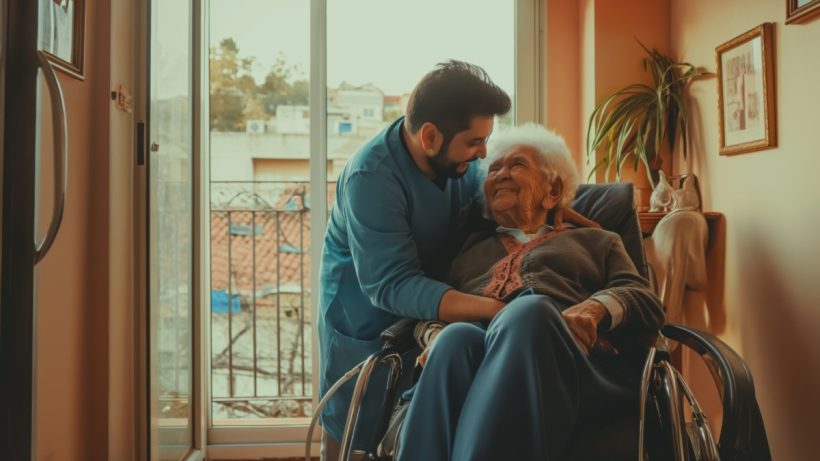As the sun dipped below the horizon, casting a warm glow through the living room window, Mary sat in her favourite armchair, her fingers tracing the delicate embroidery on the cushion. It had been her mother’s, a cherished piece of their family history. At 82, Mary’s movements were slow, and her memory was sometimes foggy, but the comfort of her home and the presence of her private home care aide, Sarah, brought a sense of peace and continuity to her days. Sarah wasn’t just a caregiver; she was a companion, a confidant, and a source of unwavering support. This personal touch of private home care transformed Mary’s twilight years, turning what could have been a lonely time into a period of profound connection and comfort.
Understanding Private Home Care
Private home care refers to personalized care services provided to individuals in their own homes. This type of care is tailored to meet each client’s unique needs, ensuring they receive the assistance and support necessary to maintain their independence and quality of life. Services can range from help with daily activities such as bathing, dressing, and meal preparation to more specialized medical care for chronic conditions or post-surgery recovery.
The Rising Demand for Private Home Care
The demand for private home care has been steadily increasing, driven by an ageing population and a growing preference for ageing in place. According to the National Institute on Aging, the number of people aged 65 and older is projected to reach 88 million by 2050, nearly double the 48 million in 2015. This demographic shift fuels the need for more comprehensive and personalized care solutions.
A survey conducted by AARP found that 90% of seniors prefer to stay in their homes as they age. Private home care makes this possible, offering a viable alternative to assisted living facilities and nursing homes. By receiving care in the familiar surroundings of their own homes, seniors can maintain a higher level of independence and comfort.
Benefits of Private Home Care
- Personalized Care: One of the most significant advantages of private home care is the tailored approach to each individual’s needs. Care plans are designed for clients, ensuring they receive the required support.
- Enhanced Quality of Life: Private home care can significantly improve the quality of life for seniors. With professional caregivers handling daily tasks and medical needs, clients can focus on enjoying their time and engaging in activities they love.
- Cost-Effective: While the cost of private home care can vary, it is often more affordable than long-term care facilities. Additionally, many insurance plans and government programs provide financial assistance for home care services.
- Companionship: Caregivers do more than provide medical care; they offer companionship and emotional support, which can be crucial for mental and emotional well-being.
- Family Peace of Mind: Knowing that a loved one is receiving professional, compassionate care at home can provide significant peace of mind for family members.
Challenges in Private Home Care
While private home care offers numerous benefits, it is not without challenges. Finding qualified and trustworthy caregivers can be difficult, and the cost, although often lower than facility-based care, can still burden some families. Additionally, coordinating care and managing various aspects of home health can be complex and time-consuming.
The Future of Private Home Care
The future of private home care looks promising, with advancements in technology playing a pivotal role. Telehealth services, remote monitoring, and mobile health applications are making providing high-quality care in the home setting easier. These innovations allow caregivers to track vital signs, manage medications, and stay connected with healthcare professionals, improving client outcomes.
Moreover, integrating artificial intelligence and machine learning in-home care management is expected to streamline operations and improve care delivery. For example, AI can help predict potential health issues before they become critical, enabling proactive interventions.
Private home care is more than just a service; it is a lifeline for many seniors and their families. The story of Mary and Sarah is just one example of how compassionate, personalized care can make a significant difference in the lives of those who choose to age in place. As the demand for home care continues to rise and technology continues to evolve, the future of private home care looks bright, promising better care, enhanced quality of life, and greater peace of mind for countless families.
Laila Azzahra is a professional writer and blogger that loves to write about technology, business, entertainment, science, and health.
